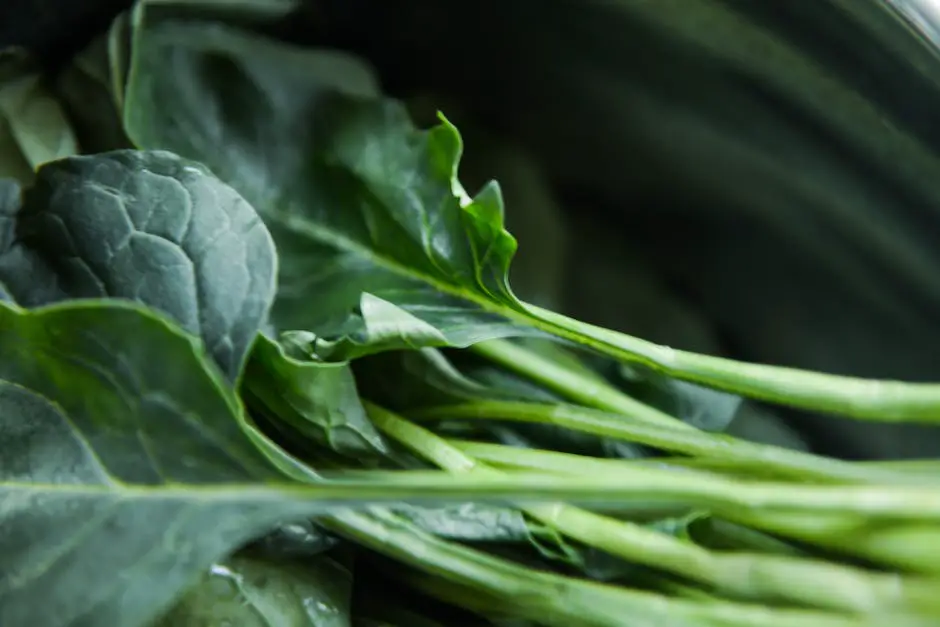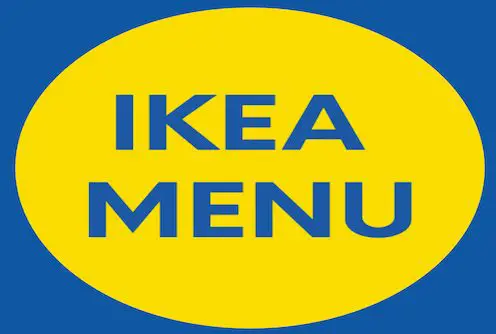As the importance of sustainable and health-conscious choices in daily life becomes more evident, food companies are continually working to offer plant-based alternatives. One example of such an innovation is the introduction of plant balls at IKEA. In this article, we will discuss the ingredients used, compare the nutritional benefits of these plant-based meatballs with traditional meatballs, explore the health advantages of plant-based diets, evaluate the environmental impacts, and share customer testimonials about their taste and experience.
Plant-Based Meatball Ingredients
IKEA’s plant-based meatballs, known as HUVUDROLL, have garnered much attention for their innovative use of plant-based ingredients, making them a nutritious and sustainable alternative to traditional meat-based meatballs. One of the key ingredients of IKEA’s plant-based meatballs is pea protein, which is derived from yellow peas. Peas are regarded as an excellent source of plant-based protein, containing all nine essential amino acids necessary for human health. Pea protein has been linked to the improvement of muscle mass, heart health, and kidney function, making it an ideal choice for IKEA’s plant-based meatballs.
Another key ingredient found in IKEA’s plant-based meatballs is oats, a staple grain known for its impressive nutritional profile. Oats are high in dietary fiber, particularly a soluble fiber called beta-glucan, which is beneficial for maintaining healthy cholesterol levels and promoting digestive health. In addition to fiber, oats are a good source of vitamins, minerals, and antioxidants, with manganese, phosphorus, magnesium, copper, and iron being among the most abundant. Including oats in the plant-based meatballs contributes to their overall nutritional value and supports various health-promoting functions.
Potatoes are also a primary ingredient in IKEA’s plant-based meatballs, providing both texture and nutrients. Known for their energy-dense carbohydrate content, potatoes have a high potassium content, vital for maintaining healthy blood pressure and nerve function. Additionally, potatoes are a good source of dietary fiber, vitamin C, and vitamin B6. The inclusion of potatoes in the plant-based meatballs not only contributes to a satisfying and hearty meal, but also adds essential nutrients to support overall health.
IKEA’s choice of ingredients for their plant-based meatballs places a strong emphasis on sustainability and environmental concerns. The production of plant-based proteins like peas is much less resource-intensive compared to animal agriculture, requiring less land, water, and energy inputs. The company’s commitment to reducing its environmental impact is reinforced by its decision to use plant-based ingredients with a lower carbon footprint, such as peas, oats, and potatoes.
The remarkable nutritional properties of IKEA‘s plant-based meatballs, HUVUDROLL, can be largely attributed to the careful selection of key ingredients, emphasizing plant-based proteins, fiber, and a wide range of vitamins and minerals. These ingredients not only contribute to a rich and balanced food item, making it a wholesome addition to any meal, but also help IKEA achieve its environmental and health-focused objectives. With an increasing number of consumers recognizing the advantages of incorporating plant-based options into their diet, the future looks promising for IKEA’s innovative and nutritious plant-based meatballs.

Nutritional Comparison with Traditional Meatballs
By introducing plant-based meatballs to their menu, IKEA has effectively created a new opportunity for those looking to make healthier and more environmentally conscious choices. One essential aspect of assessing the nutritional value of these innovative meatballs is comparing their nutritional content with that of traditional offerings. A closer examination of the nutritional breakdown of plant-based meatballs versus conventional ones can provide consumers with valuable information to make educated decisions about which option best aligns with their lifestyle and dietary objectives.
Calories Comparison
Starting with calories, plant-based IKEA meatballs contain 220 calories per six meatball serving, while the traditional beef and pork meatballs boast 260 calories for the same serving size. This 40-calorie difference may not be significant for a one-time meal; however, if you consistently make the switch, this small change can lead to long-term calorie reduction, which may contribute to weight loss or maintenance goals.
Protein Comparison
Protein is crucial for building and maintaining muscle mass, so when comparing IKEA’s plant-based meatballs to the traditional version, protein content is worth noting. Each six meatball serving of plant-based meatballs provides 14 grams of protein, whereas the conventional meatballs offer slightly higher, at 18 grams. While there might be a slight difference in protein content, the plant-based option still meets the daily protein requirements for most adults and provides essential amino acids.
Fat Comparison
When it comes to fat content, the plant-based meatballs have the advantage, with only 11g of total fat in a six-meatball serving. In contrast, the traditional meatballs offer 20g of total fat for the same serving size. Additionally, the plant-based meatballs have just 1.5 grams of saturated fat compared to 6 grams in conventional meatballs. Thus, choosing the plant-based option may be beneficial for those watching their fat intake, particularly saturated fat, which is linked to heart diseases.
Sodium Comparison
Lastly, the sodium content of both options is important, as high sodium intake can contribute to high blood pressure and other health complications. A serving of six plant-based meatballs contains 610 milligrams of sodium, while the traditional meatballs have 680 milligrams. Both options contain a considerable amount of sodium, but the plant-based option is lower, which can be a marginal benefit for those looking to reduce sodium intake.
In conclusion, IKEA’s plant-based meatballs offer a healthier alternative to traditional meatballs concerning calories, fat, and sodium content. While they may have slightly less protein than traditional meatballs, they still provide a valuable nutritional source for maintaining a balanced diet. Whether motivated by environmental concerns, personal health goals, or simply curiosity, trying the plant-based meatballs at IKEA offers consumers a chance to enjoy a delicious and nutritious meal.

Health Benefits of Plant-Based Diets
One significant factor driving the adoption of plant-based diets is the myriad of health benefits associated with eating more plant foods. Plant-based diets have been linked to improved heart health, with research indicating that people who consume more plant-based foods are at a lower risk of developing heart disease, high blood pressure, and stroke. These positive effects can largely be attributed to the high levels of fiber, antioxidants, and other nutrients found in plant foods. IKEA’s plant-based meatballs, as part of a well-rounded diet, can contribute to these health benefits, offering a satisfying option for those looking to embrace more plant-based choices in their meals.
In line with this trend, IKEA has introduced plant-based meatballs, which are designed to provide the same taste and texture as traditional meatballs but with a healthier nutritional profile.
Another reason to consider incorporating plant-based foods into your diet is for weight loss and weight management.
Plant-based diets are generally lower in calories and fat compared to omnivorous diets because they contain fewer processed foods and more whole plants like fruits, vegetables, whole grains, legumes, nuts, and seeds. Additionally, plant-based diets tend to be higher in dietary fiber, which helps regulate appetite, stabilize blood sugar levels, and aid digestion. People who consume plant-based diets are less likely to gain weight, and IKEA’s plant-based meatballs, being lower in calories and saturated fats than their traditional meat counterparts, can be a great addition to a healthy diet.
Disease prevention is another significant benefit of consuming plant-based foods. Plant-based diets have been shown to decrease the risk of type 2 diabetes, metabolic syndrome, and certain cancers, including colon, breast, and prostate cancer. The protective effect can be attributed to the high levels of antioxidants, vitamins, minerals, and phytochemicals found in plant foods, which work together to help protect the body from cellular damage caused by free radicals. The IKEA plant-based meatball’s nutrient-rich ingredients, such as pea protein, oats, and apples, contribute to these health-protective properties.
In addition to the health benefits mentioned above, IKEA’s plant-based meatballs have a lower environmental impact than traditional meatballs. This is because plant-based meat substitutes require less land, water, and energy to produce compared to animal-based meat products, resulting in a smaller carbon footprint. By choosing plant-based meatballs from IKEA, you not only make a healthier choice for your body but also support a more sustainable food production system.
When considering a shift towards a plant-based diet, it’s crucial to ensure adequate intake of essential nutrients. For example, IKEA’s plant-based meatballs are fortified with iron, vitamin B12, and zinc, nutrients that are often found in lower amounts in plant-based diets compared to omnivorous diets. Incorporating these plant-based options, such as IKEA’s plant-based meatballs, can help you achieve a well-rounded and nutrient-dense diet while enjoying the health benefits associated with consuming more plant-based foods.

Environmental Impact of Plant-Based Meatballs
Environmental Benefits of Plant-Based Meatballs
One of the significant advantages of plant-based meatballs like IKEA’s is their contribution to sustainability and climate change mitigation. The primary area of impact, when compared to traditional meat-based meatballs, is the reduction in greenhouse gas emissions. Livestock farming is a considerable contributor to global emissions, and the production of plant-based alternatives generates fewer emissions than traditional meat production. By integrating IKEA’s plant-based meatballs into your diet, you can enjoy both a nutrient-dense meal and support environmental sustainability.
Water Conservation with Plant-Based Meatballs
Producing meat products requires a significant amount of water for drinking, feed production, and habitat maintenance, leading to water scarcity issues. Conversely, producing plant-based meat alternatives consumes less water than traditional meat production. Plant-based protein requires only a fraction of the amount of water required for producing beef, which can require up to 15,000 liters of water for one kilogram.
Promoting Biodiversity with Plant-Based Meatballs
Livestock rearing requires vast land use, leading to deforestation, loss of wildlife habitats, and reduced biodiversity. Plant-based options use land more sustainably and can utilize a diverse range of plants as ingredients, promoting agricultural biodiversity and reducing dependence on limited crops.
Nutritional Benefits of Plant-Based Meatballs
Incorporating plant-based meat alternatives into diets can help individuals meet protein requirements without increasing animal product consumption leading to healthier eating habits with improved health outcomes.
Conclusion
Plant-based meatballs, such as IKEA’s HUVUDROLL, have the potential to reduce greenhouse gas emissions, conserve water, promote biodiversity, and provide a nutritious option for consumers. Embracing plant-based alternatives can play a critical role in promoting a more sustainable and environmentally-friendly food system for future generations.

Customer Reviews and Taste Testimonials
Since their introduction in 2020, IKEA’s plant-based meatballs have been gaining attention from vegetarians, meat-eaters, and environmentally-conscious consumers alike. By committing to offer more sustainable and healthier food options, the furniture giant has successfully developed a delicious and convincing plant-based alternative to their classic meatballs, catering to a wide range of dietary preferences.
Customers who have tasted the plant-based meatballs have shared a variety of opinions, with many raving about their taste and texture.
Some customers have likened the texture of IKEA’s plant-based meatballs to their traditional meat-based counterpart, praising them for their similarity. One reviewer stated, “The texture is pretty close to real meat, and the flavor is great! My non-vegetarian friends couldn’t even tell the difference.” Other positive reviews mention the flavorful and well-seasoned taste that doesn’t compromise on a satisfying “meaty” profile. Some have even claimed to prefer them over the original meatballs.
On the other hand, not all feedback has been positive. Some customers have noted that the plant-based meatballs lack the juiciness found in the original version or have a slightly different flavor. A minority of reviewers have mentioned that the plant-based meatballs are slightly drier than their meat counterparts, taking away some of the satisfaction many seek in a meatball dish. Others have reported that they can taste a subtle difference, which they attribute to the use of vegetable proteins as opposed to animal proteins.
When it comes to serving suggestions, many customers have found success in following the traditional IKEA meatball recipe, pairing the plant-based meatballs with the renowned creamy sauce, lingonberry jam, and mashed potatoes. Others have shared more creative uses, such as incorporating them into pasta dishes, stroganoffs, and even as a topping on pizza. Whether you stick to the classic serving style or branch out with your own unique recipes, IKEA’s plant-based meatballs offer versatility in the kitchen along with a good nutritional profile – packing in 13g of protein per 100g serving.
As a healthier and environmentally friendly option, IKEA’s plant-based meatballs are an attractive choice for customers looking to make a difference through their food choices. While not every review is glowing, the majority of customers seem to have enjoyed their experience with these vegetarian alternatives. It’s promising to see IKEA actively working towards improving their food offering, and one can only speculate what exciting plant-based innovations they will come up with next.”

Overall, plant-based meatballs at IKEA not only offer a healthier and more environmentally friendly meal option but also provide a tasty and satisfying alternative for customers. By choosing these meatballs, one can embrace a plant-based diet with potential health benefits, contribute to sustainable environmental solutions, and savor the delicious flavor of this innovative dish. It is worth exploring these plant-based meatballs the next time you visit IKEA and decide for yourself how they compare to traditional meatballs in terms of taste, texture, and overall satisfaction.


